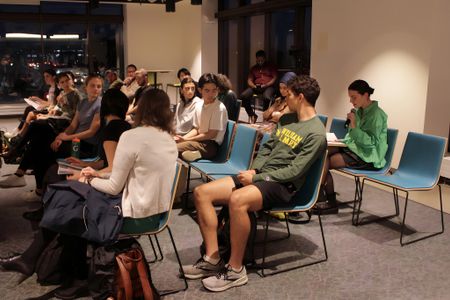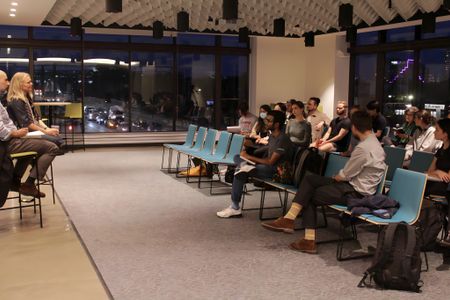Rethinking European Identity: Insights from Kundnani’s Book Talk
On October 26th, 2023, an engaged audience participated in a thought-provoking book talk by Hans Kundnani, author of “Eurowhiteness.”
In the engaging dialogue facilitated by Kaija Schilde, Jean Monnet Chair in European Security and Defense, Pardee School Associate Professor of International Relations, and CSE Director, the exploration of European integration and identity provided a reevaluation of established narratives. Kundnani challenged the common perception of the European Union as a symbol of global cosmopolitanism, proposing a reinterpretation of the EU as an expression of regionalism. The conversation delved into the historical roots of European identity, tracing its origins to the medieval period and dissecting its complex evolution from religious to secular rationalist concepts during the Enlightenment.
A pivotal question emerged regarding the fate of ethnic and cultural ideas of Europe post-1945, challenging the assumption of a clean break in European identity. Kundnani highlighted the colonial motivations intertwined with the EU’s early steps, questioning the prevailing narrative of post-war anti-nationalist motives. The dialogue extended to the post-Cold War period, exploring the optimistic expansion of the EU and its subsequent defensive stance, culminating in the civilizational turn after the refugee crisis of 2015.
Audience reflections further enriched the discussion, introducing perspectives on racism, cosmopolitanism, and the evolving nature of European identity. The nuanced exploration of historical intersections, migration policies, and civilizational thinking left the audience grappling with the complexities that shape the contemporary landscape of the European project, inviting contemplation on Europe’s multifaceted past and its profound impact on the present.
As the book talk concluded, participants departed with valuable insights and signed copies of Kundnani’s book. This discussion offered a deeper understanding of the intricate layers of European identity, leaving us with much to ponder about the past and its influence on the present.



